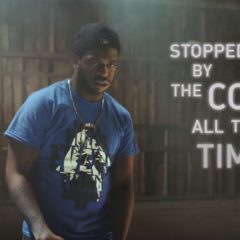Information from Mobile Justice website.
Your Right to Take Video and Photographs
- When in outdoor public spaces where you are legally present, you have the right to capture any image that is in plain view. That includes pictures and videos of federal buildings, transportation facilities (including airports), and police officers.
- When you are on private property, the property owner sets the rules about the taking of photographs or videos. If you disobey property owners’ rules, they can order you off their property (and have you arrested for trespassing if you do not comply).
- Police should not order you to stop taking pictures or video. Under no circumstances should they demand that you delete your photographs or video.
- Police officers may order citizens to cease activities that are truly interfering with legitimate law enforcement operations. In general, a court will trust an officer’s judgment about what is “interfering” more than yours. So if an officer orders you to stand back, do so.
- If the officer says he/she will arrest you if you continue to use your camera, in most circumstances it is better to put the camera away and call the ACLU for help, rather than risking arrest.
- Police officers may not generally confiscate or demand to view your photographs or video without a warrant. If you are arrested, the contents of your phone may be scrutinized by the police, although their constitutional power to do so remains unsettled. In addition, it is possible that courts may approve the seizure of a camera in some circumstances if police have a reasonable, good-faith belief that it contains evidence of a crime by someone other than the police themselves.
Using a Video Recorder (Including Cell Phones) With Audio Capacity
- You have a right to capture images in public places, but you don’t always have a right to record what people say.
- You have the right to videotape and audiotape police officers performing official duties in public. That means you can record an officer during a traffic stop, during an interrogation, or while he or she is making an arrest.
- You can record people protesting or giving speeches in public.
If You Are Stopped or Detained for Taking Photographs or Videos
- Always remain polite and never physically resist a police officer.
- If stopped for photography, ask if you are free to go. If the officer says no, then you are being detained, something an officer cannot do without reasonable suspicion that you have or are about to commit a crime or are in the process of doing so. Until you ask to leave, your being stopped is considered voluntary under the law and is legal.
- If you are detained, politely state that you believe you have the right to take pictures or video and that you do not consent to the officer looking through or deleting anything on your camera. But if the officer reaches for your camera or phone, do not resist. Simply repeat that you do not consent to any search or seizure. You don’t want to invite a charge for “resisting arrest.”
